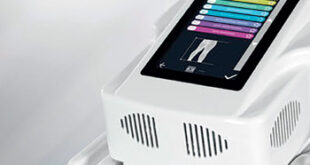 Bob Dylan. The Rolling Stones. Led Zeppelin. Music helped define an entire generation of baby boomers. It expressed their fresh world view and energized them as they set the world in a new direction.
Bob Dylan. The Rolling Stones. Led Zeppelin. Music helped define an entire generation of baby boomers. It expressed their fresh world view and energized them as they set the world in a new direction.
But if you’re like many from this music-filled, life-embracing generation, then some of that old time rock and roll may still be ringing in your ears. Literally.
Tinnitus, commonly called “ringing in the ears,” is the perception of a sound in a person’s ears or head that has no external source. Many people with tinnitus experience ringing, humming, buzzing, or chirping in their ears or head. Others even perceive singing or music. Neural hyperactivity causes the perception of sound.
As it turns out, tinnitus is most often the result of noise exposure, although it can be caused by other things as well. And it’s almost always accompanied by hearing loss. So it seems that all those years of rock concerts and loud stereos may have unwittingly set baby boomers up for the ringing in the ears that many are experiencing today.
Tinnitus is also more common than many people realize. In fact, it affects nearly 50 million Americans. And baby boomers are heavily hit by it, with roughly 21 percent of 55-to-64 year olds experiencing tinnitus.
The good news is there are things that boomers can do to help manage tinnitus and address the often-accompanying hearing loss so it doesn’t have to slow them down.
Hearing aids can help significantly. Not only do they improve hearing and communication, but they help reduce the prominence of tinnitus by amplifying background sound. Just taking the focus off the tinnitus can provide relief for many people. Hearing aids also reduce the stress associated with intensive listening, which alone can help relieve tinnitus symptoms.
There are other potential treatments available to boomers as well. Biofeedback, cognitive behavioral and mindfulness based stress reduction, and sound therapy are just some examples, among others.
The very best thing someone with ringing in the ears can do is to visit a hearing health care professional. Find someone with experience in treating tinnitus. And make an appointment for a hearing examination and consultation on the most appropriate treatment options for your symptoms and lifestyle.
So take heart, boomers. You’ve been forging new paths for America to live by for decades now. It’s time to lead the way in how you manage that ringing in your ears—and hearing loss—with that same characteristic energy, determination, and innovation that turned the world on its head.
For more information on hearing health, and to take a quick, confidential, online hearing check, visit www.HearUSA.com.
Do you know these five trending facts about today’s hearing aids?
1. They’re virtually invisible. Many new hearing aids sit discreetly and comfortably inside the ear canal, providing both natural sound quality and ease of use.
2. They automatically adjust to all kinds of soundscapes. Technological advances with directional microphones have made hearing aids more versatile than ever before in a broad range of sound environments.
3. You can enjoy water sports and sweat while wearing them. Waterproof digital hearing aids have arrived. This feature is built into some new hearing aids for those concerned about water, humidity and dust. This feature suits the active lifestyles of swimmers, skiers, snowboarders, intensive sports enthusiasts and anyone working in dusty, demanding environments.
4. They work with smartphones, home entertainment systems and other electronics. Wireless, digital hearing aids are now the norm. That means seamless connectivity—directly into your hearing aid(s) at volumes that are just right for you—from your smartphone, MP3 player, television and other high-tech gadgets.
5. They’re always ready. A new rechargeable feature on some newly designed hearing aids allows you to recharge your hearing aids every night, so they’re ready in the morning. It’s convenient—and there’s no more fumbling with small batteries.
Check Also
South Florida’s Best Priced/Highest Reviewed Home Care
Florida Best Home Care LLC stands out as the premier home care company in South …
 South Florida Health and Wellness Magazine Health and Wellness Articles
South Florida Health and Wellness Magazine Health and Wellness Articles




